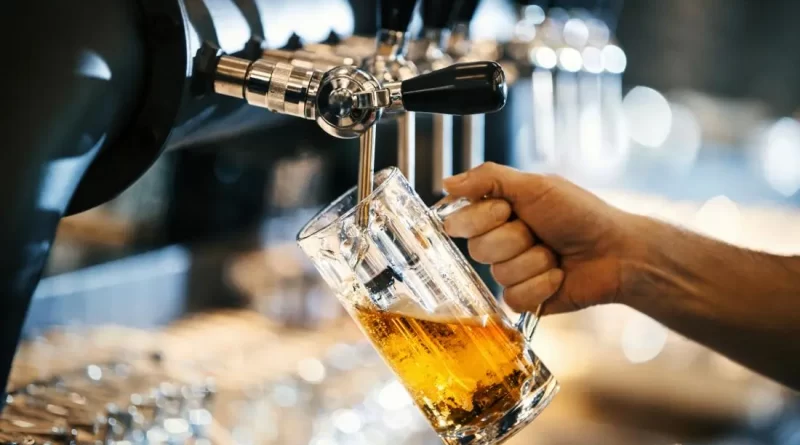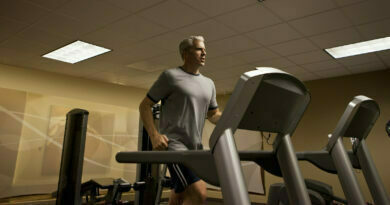A Dose of Reality: How Alcohol Causes Weight Gain
Have you ever wondered why your favorite alcoholic beverage isn’t included in the list of diet foods? It may be because drinking regularly can actually cause you to gain weight! Drinking alcohol in large quantities can increase your appetite and make you crave high-calorie, unhealthy foods like pizza and ice cream. In addition, alcohol may suppress the hormone that signals fullness from the stomach to the brain, so you’re not aware of how much you’re eating when you drink alcohol.
The Effect of Two Drinks on Hydration
Your body loses fluids when you drink alcohol. This dehydration can cause fluid retention, which can lead to weight gain. In addition, alcohol calories are empty calories that provide no nutritional value. When you consume too many empty calories, you can end up gaining weight.
So, how much is too much? The National Institute on Alcohol Abuse and Alcoholism (NIAAA) defines moderate drinking as up to two drinks per day for men and one drink per day for women. They also recommend that people who don’t drink regularly should limit themselves to one drink per occasion. Drinking more than this can lead to weight gain.
How Can You Avoid Gaining Weight from Drinking? There are a few things you can do to avoid the negative effects of alcohol on your weight:
-Stay hydrated by drinking water before, during, and after you drink alcoholic beverages.
-Eat before or while you’re drinking so that you’ll be less likely to overeat when the alcohol starts taking effect.
-Avoid sugary mixers such as juice or soda; they contain lots of sugar which will not help with hydration.
The Effect of One Drink on Sugar Cravings
When you drink alcohol, your body metabolizes it first, before it can process anything else. This means that the calories from the alcohol are more likely to be stored as fat. And since alcohol lowers your inhibitions, you’re more likely to make poor food choices when you’re drunk. Drinking just one sugary cocktail can cause a spike in blood sugar levels, which can lead to cravings for more sugary and high-fat foods. If you want to lose weight, avoid alcohol. However, if you want to enjoy an occasional glass of wine with dinner, try limiting yourself to two drinks. To keep those extra pounds at bay, you should also try these tips:
1) Add vegetables to every meal
2) Eat small portions
3) Include lean protein with every meal
4) Cut back on carbs by eating whole grains instead of white breads or pastas
5) Make sure to get enough sleep by going to bed earlier or taking power naps during the day
6) Reduce your calorie intake by cutting out some high-calorie snacks such as cookies or chips
7) Drink lots of water each day.
The Effect of One Drink on Appetite
When you drink alcohol, it quickly enters your bloodstream and affects your brain. This can lead you to feel more relaxed and less inhibited, which may cause you to eat more than you would otherwise. As an added side effect, alcohol can make you feel hungrier and in turn prompt cravings for junk food. One study found that men who drank just one alcoholic beverage before a meal ate an average of 385 more calories than when they didn’t drink any alcohol. So if you’re trying to lose weight or maintain a healthy weight, it’s best to limit your alcohol intake. Your best bet is to stick with light beer, wine spritzers, or vodka soda with low calorie mixers like club soda or diet tonic water. If you want to indulge in a cocktail, try drinking top shelf brands (instead of super cheap ones) that use higher quality ingredients so you get fewer calories per drink. Also, be sure to monitor how much you’re eating while you’re drinking. The next day, plan out what you’ll eat for breakfast and lunch – as these are the two most important meals of the day for maintaining weight loss.
The Effect of One Drink On Total Calories Consumed
We all know that alcohol has calories. But did you know that just one drink can add up to a lot of extra calories in your diet? About 153 calories are in a 12-ounce can of beer, and 125 calories are in a 5-ounce glass of red wine. That doesn’t seem like much, but it can quickly add up. If you have two drinks a day, that’s an extra 300 calories. And if you’re not careful, those extra calories can lead to weight gain. One study found that men who drank more than 50 units of alcohol per week gained nearly 10 pounds over 10 years. The problem is people often consume more than they realize when they drink. Another study found that people drinking cocktails had no idea how many calories they were consuming because the food interfered with their sense of taste. Many women don’t realize the difference between one drink and two drinks, which makes it even easier to go overboard on the booze. For example, a margarita might be 150 calories (or 100 for a single shot), while a vodka tonic might be 200 calories (or 150 for one shot). It’s also easy to underestimate what constitutes as one alcoholic beverage since bartenders may pour anything from 8-12 ounces of liquor depending on whether or not they are making mixed drinks or shots.
Why Binge Drinking is a Weight Loss Downfall
There are plenty of reasons to avoid binge drinking if you’re trying to lose weight. For one, alcohol is calorie-dense, so those extra drinks can quickly add up. But alcohol also inhibits your body’s ability to burn fat, makes you more likely to eat unhealthy foods, and can cause dehydration, which can lead to water retention. In other words, it’s a weight loss downer in just about every way possible. So if you’re serious about shedding pounds, it’s best to keep the booze to a minimum. If that sounds like too much for you, try substituting non-alcoholic beverages for alcoholic ones during happy hour or at home with friends. If all else fails, remember that there are many different types of alcoholic beverages out there (beer, wine, liquor) and they each have different amounts of calories – so don’t feel like you have to drink beer all night just because it has fewer calories than wine! And while we’re on the topic of alcohol content, remember that 12 oz. beers range from approximately 150 to 200 calories per bottle; 7 oz. glasses of wine are between 120 and 140 calories; 1.5 oz. shots of whiskey range from 100 to 160 calories; while 4 oz. martinis average around 160 to 190 calories per glass!
Can You Reverse the Damage?
Alcohol is a calorie-dense substance, and those calories can quickly add up. But it’s not just the calories in alcohol that can lead to weight gain. Alcohol also lowers your inhibitions, which can lead to poor food choices and overeating. And, it disrupts your sleep, which can throw off your hunger hormones and cause you to crave unhealthy foods. Luckily, there are ways to reverse the damage. It’s important to stay hydrated after drinking so you don’t become dehydrated and lose out on any water weight benefits. One way to do this is by drinking coffee or green tea instead of high-calorie alternatives like juice or soda. Drinking water will help flush out some of the alcohol from your system, too! You should also eat healthy snacks like fruits and vegetables before bed so you’re less likely to reach for less nutritious options. You should never exercise while drunk because it could be unsafe, but working out in the morning after a night of drinking can boost metabolism and keep cravings at bay during the day. Finally, if you’re really struggling with alcohol abuse issues, seek professional help through AA or NA meetings.




